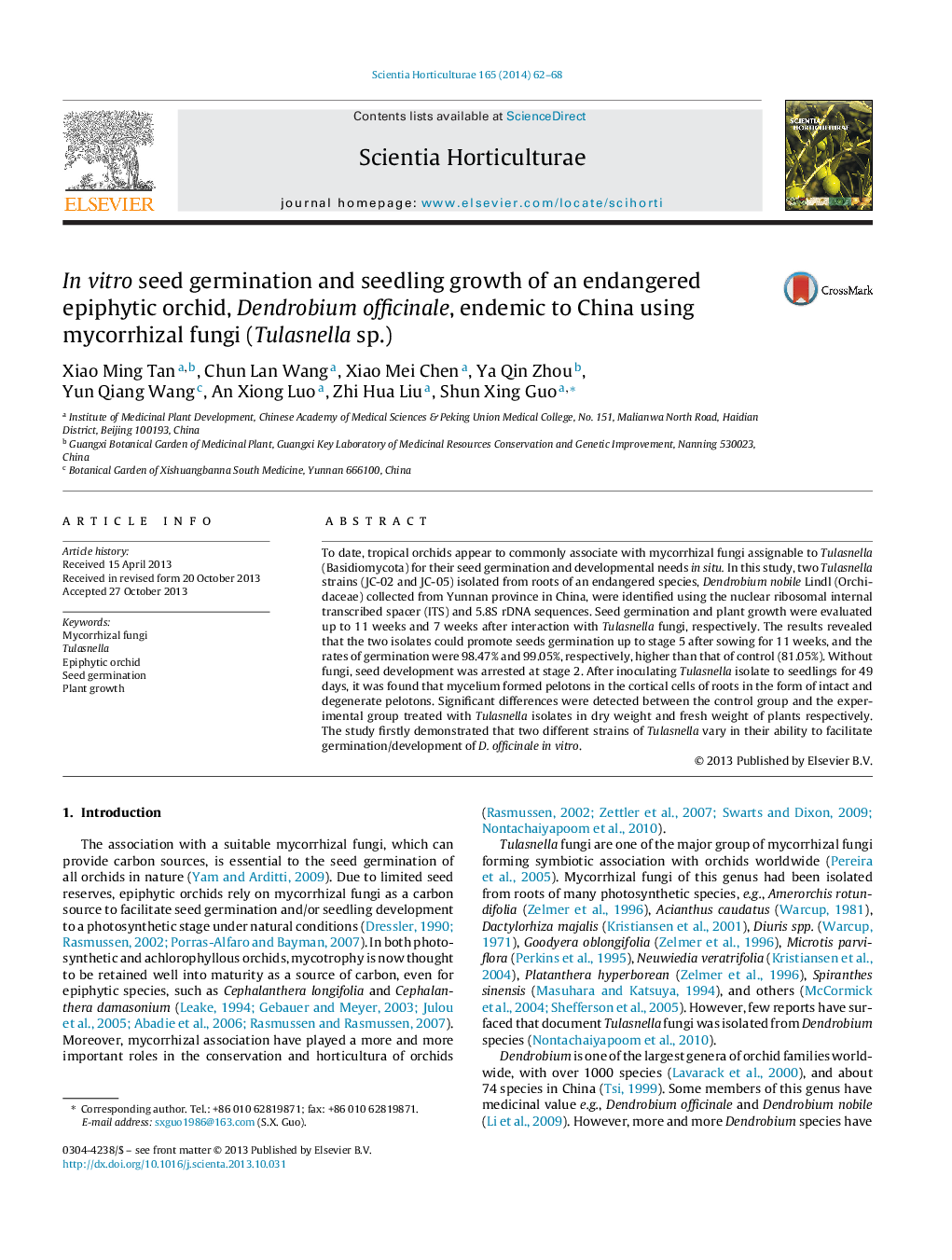| Article ID | Journal | Published Year | Pages | File Type |
|---|---|---|---|---|
| 6407380 | Scientia Horticulturae | 2014 | 7 Pages |
â¢The first study to isolate Tulasnella fungi from roots of Dendrobium officinale Kimura et Migo.â¢The study firstly showed the same Tulasnella fungi can play different roles in the lifecycle of D. officinale in vitro.â¢The results from this report are helpful for the actual propagation and conservation of orchids.
To date, tropical orchids appear to commonly associate with mycorrhizal fungi assignable to Tulasnella (Basidiomycota) for their seed germination and developmental needs in situ. In this study, two Tulasnella strains (JC-02 and JC-05) isolated from roots of an endangered species, Dendrobium nobile Lindl (Orchidaceae) collected from Yunnan province in China, were identified using the nuclear ribosomal internal transcribed spacer (ITS) and 5.8S rDNA sequences. Seed germination and plant growth were evaluated up to 11 weeks and 7 weeks after interaction with Tulasnella fungi, respectively. The results revealed that the two isolates could promote seeds germination up to stage 5 after sowing for 11 weeks, and the rates of germination were 98.47% and 99.05%, respectively, higher than that of control (81.05%). Without fungi, seed development was arrested at stage 2. After inoculating Tulasnella isolate to seedlings for 49 days, it was found that mycelium formed pelotons in the cortical cells of roots in the form of intact and degenerate pelotons. Significant differences were detected between the control group and the experimental group treated with Tulasnella isolates in dry weight and fresh weight of plants respectively. The study firstly demonstrated that two different strains of Tulasnella vary in their ability to facilitate germination/development of D. officinale in vitro.
